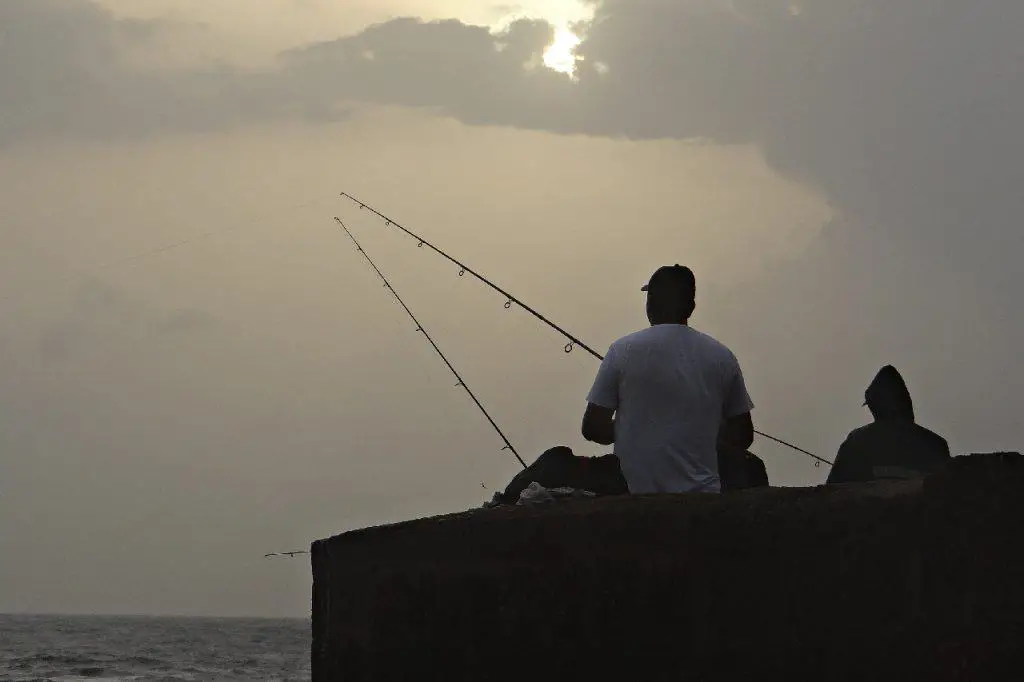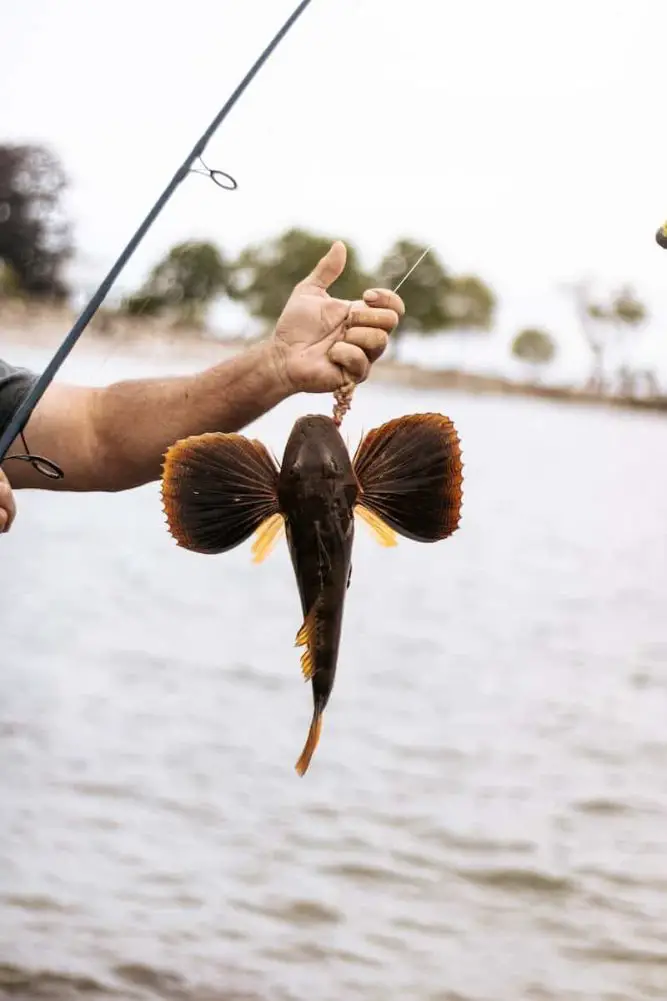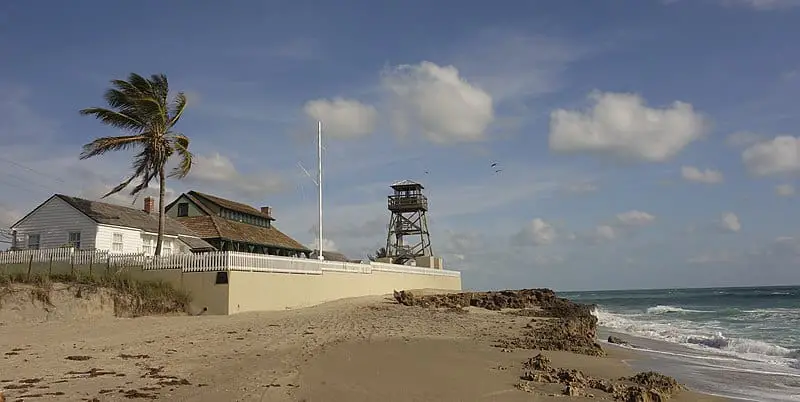Are you ready to go fishing in Florida? If so, you need to make sure you have the proper licenses and permits. Fishing licenses in Florida are a requirement for anyone who wishes to fish recreationally on public waters.
It’s exciting to know that each purchase of a Florida fishing license helps fund conservation efforts, research, and management of the state’s fisheries.
Fishing is an immensely popular pastime in the United States, especially in Florida. With its miles of coastline and numerous fresh-water lakes, the Sunshine State offers plenty of opportunities for anglers to drop a line.
Before heading out on the water, however, you must be aware of the state’s regulations regarding fishing licenses.
Residents and non-residents in Florida must have fishing licenses if they wish to fish in freshwater or saltwater. The Florida Fish and Wildlife Conservation Commission is responsible for issuing fishing permits and enforcing fishing regulations.
The state of Florida is well-known for its many fishing opportunities. To fish in the state’s waters one must have a valid fishing license.
The Florida Fish and Wildlife Conservation Commission is responsible for issuing fishing permits and enforcing fishing regulations.
In this article, we will provide a comprehensive overview of what you need to know about acquiring and using a fishing license in Florida.
Learn About Obtaining a Fishing License in Florida
Fishing licenses in Florida are required for individuals who wish to fish in the state’s freshwater and saltwater bodies.
These licenses are issued by the Florida Fish and Wildlife Conservation Commission (FWC) and can be obtained through various outlets, including tax collector offices and online.
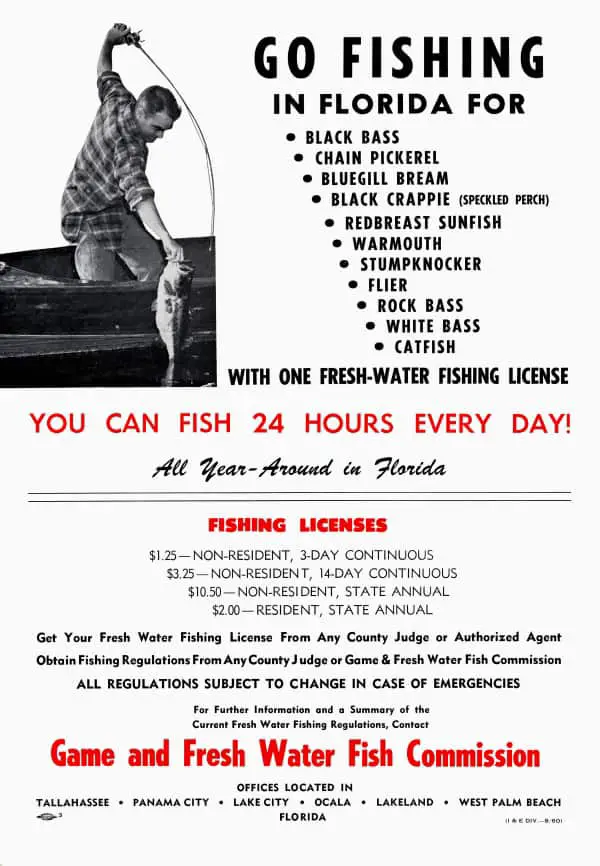
Proof of age is required for all individuals who wish to purchase a fishing license. This can be done by providing a valid Florida driver’s license or identification card. Children under the age of 16 do not need a fishing license, but must be accompanied by a licensed adult.
There are several types of fishing licenses available in Florida, including annual, five-year, and combination licenses. Annual licenses are valid for 365 days from the date of purchase and can be used for both freshwater and saltwater fishing.
A Five-year license is also valid for 365 days but is valid for five years from the date of purchase. Combination licenses include both a freshwater and saltwater license, as well as a spiny lobster permit.
The Florida Wildlife Management Area (WMAs) and Fish Management Area (FMAs) may require an additional permit or management area stamp. These permits can be obtained through tax collector offices or online and are valid for one year.
In addition to fishing licenses, Florida also requires a vessel license for boats used in recreational fishing. This license can be obtained through tax collector offices or online.
Fees for fishing licenses vary depending on the type of license and the individual’s residency status. Resident fishing licenses are less expensive than non-resident licenses, and dependent children of residents may be eligible for a free license.
When purchasing a fishing license, individuals will also need to provide their county of residence and submit their orders through tax collector offices or online.
It’s important to note that some saltwater species may also require a special permit and that the use of natural bait is not allowed in all areas. Additionally, certain line retrieval mechanisms may also be prohibited in certain areas.
What Is A Fishing License?
A fishing license is an important document that certifies a person has the proper authorization to legally fish in the waters of Florida. It requires that individuals adhere to specific state regulations, including size and bag limits for fish caught.
Depending on a person’s age, residency, and length of stay, there are different types of licenses available for purchase from the Florida Fish and Wildlife Conservation Commission (FWC).
Having a valid fishing license is essential for any angler looking to take advantage of Florida’s abundant aquatic resources.
With an array of freshwater lakes, rivers, and streams as well as saltwater estuaries and shorelines, the Sunshine State offers plenty of opportunities for fishing and recreational purposes for fishermen.
A fishing license not only helps maintain good conservation practices while keeping populations healthy, but it also supports research projects conducted by FWC biologists designed to help ensure quality fishing experiences in the future.
When fishing in certain areas managed by another agency, be sure to verify any additional rules or permits.
Regulations & License Requirements for Fishing in Florida
Fishing in Florida can be a great recreational activity, but before you cast your first line, there are certain regulations and requirements that must be followed.
A fishing license is one of the most important requirements for anglers looking to pursue their hobby in the state.
Fishing licenses in Florida are issued by the Fish and Wildlife Conservation Commission (FWC) and are available for purchase at county tax collectors’ offices or online.
Each type of fishing license has specific guidelines that must be adhered to. For example, saltwater fishing requires a different license than freshwater fishing.
The same goes for harvesting oysters or crabs – separate permits are required if you intend on taking them home with you.
Additionally, non-residents who wish to fish in Florida will need to purchase a special permit as well as any applicable stamps or endorsements that may apply in some areas of the state.
Types of Licenses
Fishing licenses are a requirement for anyone wanting to fish in Florida waters. There are several types of fishing licenses available for different purposes, allowing anglers to determine which best suits their needs.
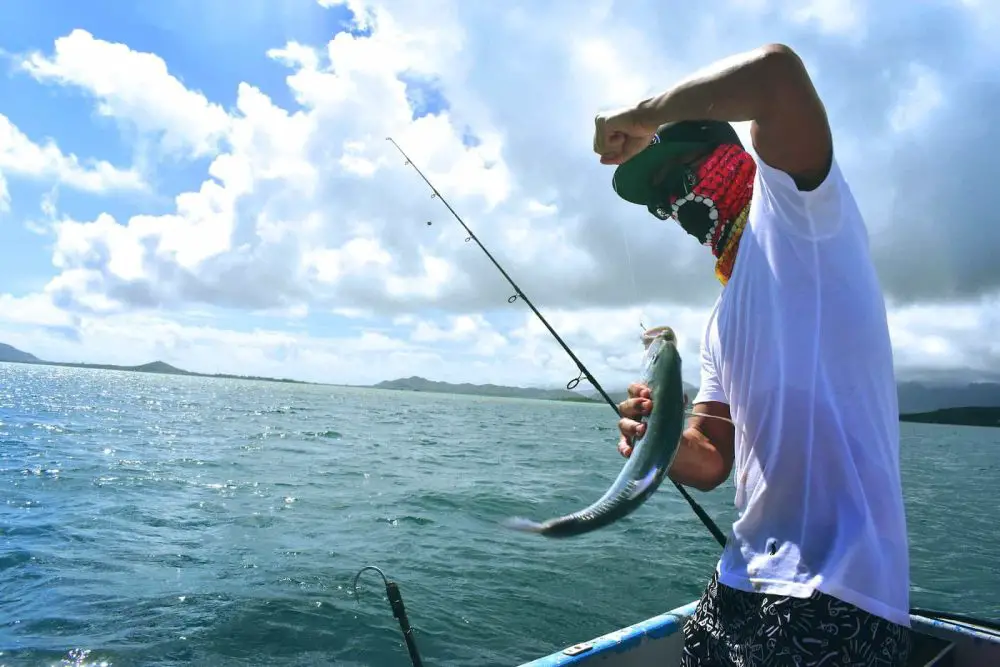
Florida has many types of fishing licenses. Each one comes with its own set of rules.
These include:
- Annual fishing license: This is an annual license that is valid for one year from the date of purchase. It allows you to fish in saltwater as well as freshwater.
- Five-year fishing license: This is a 5-year license that is valid for five years from the date of purchase. It allows you to fish in saltwater as well as freshwater.
- Saltwater-only fishing license: This license permits the holder of the license to fish only in saltwater and is valid for one (1) year after purchase.
- Freshwater-only fishing license: This license permits the holder of the license to fish only in freshwater and is valid for one (1) year after purchase.
- Non-resident annual fishing license: This license is only available to non-residents. It is valid for one year from the date of purchase. This license allows you to fish in saltwater as well as freshwater.
- Non-resident three-day fishing license: This license is only available to non-residents. It is valid for three consecutive working days. This license allows you to fish in saltwater or freshwater.
Noting that certain fishing areas in Florida are managed and maintained by the National Park Service and other federal agencies is important. These areas could have additional rules and regulations and may require additional permits or licenses.
The state of Florida offers additional licenses to seniors, disabled people, and military personnel in addition to the standard licenses. These licenses may have reduced rates and specific requirements.
Noting that certain fishing areas in Florida are managed and maintained by the National Park Service and other federal agencies is important. These areas could have additional rules and regulations and may require additional permits or licenses.
It is essential to know the state’s fishing regulations when planning a Florida fishing trip. Always check for any additional rules or regulations and any permits or licenses required to fish in certain areas managed by another agency.
By following the rules and obtaining the right licenses, anglers can have a fun and sustainable fishing experience in Florida.
For residents or non-residents who want to fish in freshwater or saltwater in Florida, fishing licenses must be obtained. The Florida Fish and Wildlife Conservation Commission is responsible for issuing fishing licenses and enforcing fishing regulations.
There are many types of fishing licenses, including non-resident five-year, annual, saltwater-only, and freshwater-only fishing licenses, as well as special licenses for senior citizens, disabled people, and military personnel.
Cost of Licenses to fish in Florida
If you are looking to fish in Florida, you need to know the cost of fishing licenses. Obtaining a fishing license is an important part of being a responsible angler and helps protect the environment and the fish that live there.
Florida has a few different types of fishing licenses available, each with its own cost associated with it.
The most basic type of fishing license is a resident saltwater license which costs $17 for one year or $7 for three days.
Non-residents will have to pay more for their saltwater license at $47 for one year and $17 for three days. In addition to this general saltwater license, residents can also purchase a five-year saltwater fishing package for just $79!
Restrictions & Laws to Fish in Florida
Fishing licenses in Florida have specific restrictions and laws that must be followed by anglers. It is important for individuals to understand these regulations in order to ensure a safe, successful, and enjoyable fishing experience.
- The State of Florida requires all people over the age of 16 to obtain a valid fishing license when fishing from public freshwater sources or saltwater areas.
- For those under the age of 16, a permit is not required but they must still adhere to all state regulations and size limits.
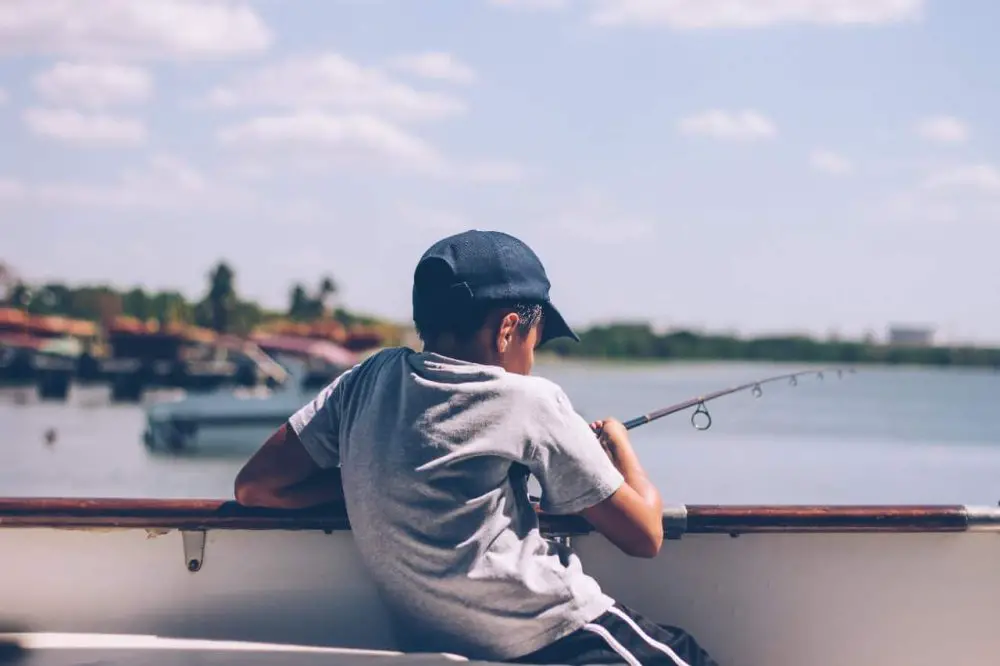
Furthermore, it is illegal to sell fish without a commercial license; if caught selling fish illegally, the violator may face severe penalties including fines and even jail time.
In addition, there are also several species-specific regulations such as bag limits and size limits that must be respected while fishing in Florida waters.
Does Walmart Sell Fishing Licenses In Florida?
Walmart is a very popular store in America. Many people are curious if they can buy fishing licenses from Walmart. Walmart sells fishing licenses in Florida, so that’s the short answer.
To make it easier for residents and visitors to buy fishing licenses, the Florida Fish and Wildlife Conservation Commission has partnered up with Walmart.
There are many fishing licenses available at Walmart stores throughout the state, including non-resident five-year, saltwater only, freshwater-only, annual, three-day, non-resident, annual, and five-year fishing licenses.

Also, special licenses are available for military personnel, seniors, and disabled people.
You will need a valid ID and proof that you are a resident of the country to purchase a Walmart fishing license. A license can also be purchased online by the FWC. It can be printed in the store or sent electronically to your email.
Not all Walmart stores sell fishing licenses in Florida. It is worth noting. Fishing licenses can also be purchased in other retail locations, such as sporting goods shops and bait and tackle shops.
Walmart sells fishing licenses as well as a variety of accessories and equipment for fishing, such as lures and rods, reels, and tackle. It’s a one-stop shop for all things fishing.
Walmart Florida has a variety of fishing licenses available. The price varies according to the type of license purchased and the resident status of the purchaser.
These are just a few examples of the license costs at Walmart Florida.
- Florida residents can purchase a freshwater fishing license annually for $17.00
- Florida residents can purchase a saltwater fishing license annually for $17.00
- Florida residents can purchase a $30.50 annual freshwater or saltwater fishing license
- Florida residents can purchase a five-year saltwater and freshwater fishing license for $79.50
- Non-residents can purchase a freshwater fishing license for $47.00 annually
- Non-residents can purchase a saltwater fishing license for $47.00 annually
- Non-residents can apply for an annual freshwater or saltwater fishing license at $76.50
- Non-resident three-day freshwater and saltwater fishing license: $17.00
The cost of a license can vary depending on where it is purchased. Not all Walmart stores sell fishing licenses in Florida.
These prices can change at any time so it’s a good idea to contact the Walmart store or the Florida Fish and Wildlife Conservation Commission website to get the latest prices and information.
This makes it convenient for both residents and non-residents to purchase licenses. You should check with your local Walmart to verify availability. However, not all Walmart locations in Florida sell fishing licenses.
Fishing licenses can also be purchased at other retail outlets such as bait and tackle shops and sporting goods stores.
Walmart offers many accessories and fishing equipment, making it an easy one-stop shop for all your fishing needs.
Can You Fish In Florida Without A Fishing License?
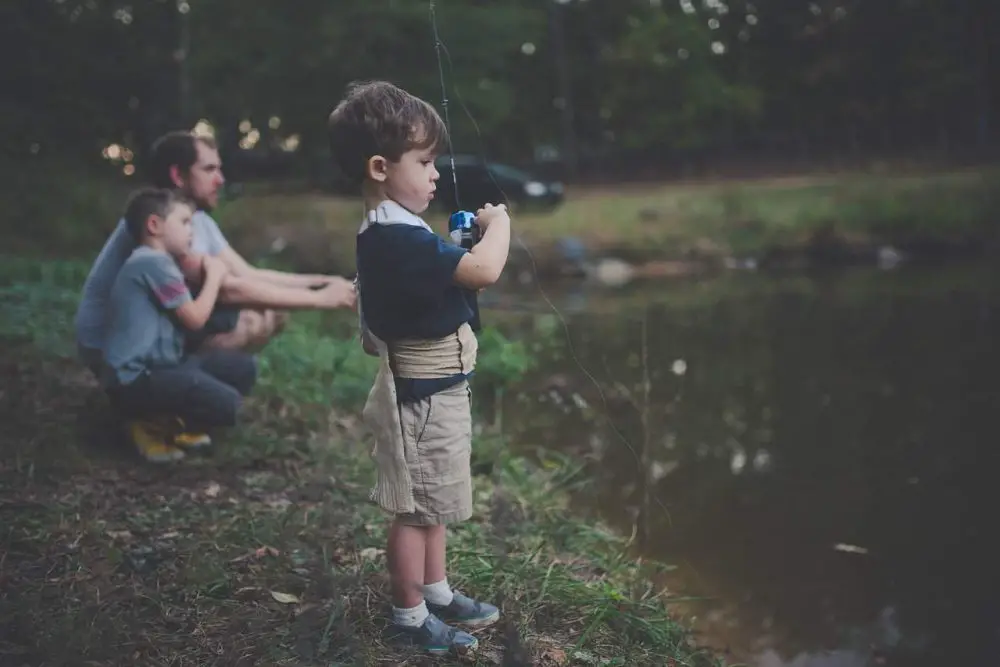
While Florida is home to fishing, which is very popular. However, residents and non-residents must have a fishing permit if they wish to fish in freshwater or saltwater.
The Florida Fish and Wildlife Conservation Commission is responsible for issuing fishing permits and enforcing fishing regulations.
There are exceptions to this rule. Some individuals do not need a fishing license, such as:
- Children below 16 years old: Florida fishing licenses are not required for children under 16 years of age.
- Florida residents 65 and older: Florida residents 65 and older can apply for a senior citizen fishing license, which is available at no cost.
- Individuals with disabilities: Disabled persons who have been certified as permanently disabled by the FWC may be eligible to receive a fishing license for free.
- Armed Forces personnel: Florida residents who are active duty military personnel may be eligible to receive a fishing license for free.
Do Veterans Pay For Fishing Licenses In Florida
Veterans with a service-connected disability rating of at least 50% from the U.S. Department of Veterans Affairs could be eligible for a lifetime license and hunting license in Florida.
All veterans may be eligible to receive a discount hunting or fishing license. This license’s cost varies depending on whether it is for freshwater or saltwater.
The Veterans Affairs office and the county tax collector’s offices can help veterans obtain the documents required to be eligible for the benefits.
Do Senior Citizens Have To Pay For Fishing Licenses In Florida?
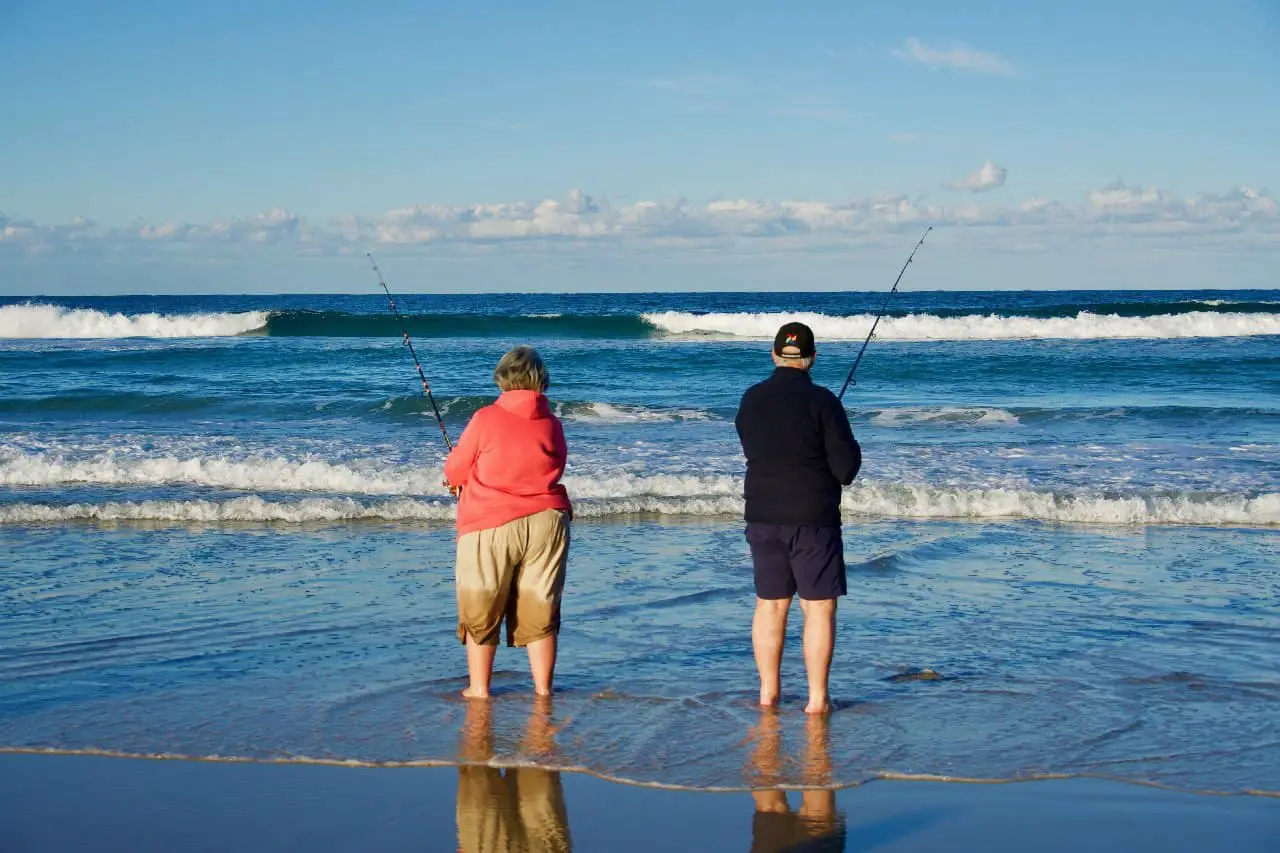
Florida residents 65 and older can apply for a senior citizen fishing and hunting license that allows them to fish in freshwater as well as saltwater.
The Florida Fish and Wildlife Conservation Commission (FWC), or a county tax collector’s office can issue this license to you. Even if they are granted a free fishing license, seniors must still comply with all regulations and rules.
Some fishing areas in Florida are also managed by the National Park Service and other federal agencies.
These areas may have additional rules or regulations and may require additional permits or licenses.
Notable is also the fact that certain fishing methods are exempted at certain times of the year and during certain times of day, such as free fishing days. These days are set by the FWC and announced in advance.
Remember that you still need to comply with all rules and regulations, even if your fishing license is not required
Summary of Florida Fishing Licenses
Florida is a popular destination for fishing enthusiasts due to its abundance of freshwater and saltwater bodies. Whether you’re fishing from a charter boat, a private boat, or from the shore, you’ll need a valid fishing license to do so.
Fishing licenses in Florida are issued by the Florida Fish and Wildlife Conservation Commission (FWC) and can be obtained through various outlets, including tax collector offices and online.
A valid hunting license or primary residence in Florida is required to purchase a fishing license. For active military personnel, an annual military gold sportsman’s license is available, which includes both hunting and fishing licenses.
A valid military ID, along with military orders, is required to purchase this license.
Annual fishing licenses are available for both freshwater and saltwater fishing. An annual saltwater fishing license is required for individuals who wish to fish for marine fish in saltwater bodies.
Resident hunting licenses are also available for individuals who wish to hunt for freshwater fish in freshwater bodies.
For those who fish from a charter boat or private boat, a vessel license is also required. This license can be obtained through tax collector offices or online. Additionally, a Florida waterfowl permit is required for individuals who wish to hunt for waterfowl.
When purchasing a fishing license, individuals will also need to provide their primary residence and a valid hunting license. A valid ID and birth certificate may also be required. All licenses have an expiration date and must be renewed before the end of the fiscal year.
It’s important to note that fishing in a man-made pond may require a special permit and fishing in a Wildlife Management Area may require an additional permit or management area stamp.
Additionally, there are excise taxes on fishing and hunting licenses and permits, which are used for wildlife management and conservation programs.
Fishing licenses can be obtained through various outlets, including tax collector offices, agents of the Florida Fish and Wildlife Conservation Commission, and Bass Pro Shops.
In addition to a fishing license, individuals may also need to purchase a federal duck stamp, turkey permit, or deer permit, depending on the type of hunting they plan to do.
Fishing licenses in Florida are an important part of being a responsible angler. With so many different license types available, it’s important to understand the regulations and requirements for fishing in the state.
In this article, we’ve broken down the various types of fishing licenses available in Florida, including their cost, who needs them, and how they can be obtained.
At a glance, there are two main categories of fishing licenses in Florida: saltwater and freshwater. Saltwater fishing requires a saltwater license while freshwater requires either a resident or non-resident freshwater license.
A combination license is a great option for those who want to fish in both environments and save money.
Before you go fishing, be sure to check the rules and regulations of the specific area you plan to fish, including the use of line retrieval mechanisms and management area permits.
Fishing license fees vary depending on residency status and dependent children may be eligible for free licenses. Remember to bring proof of your home county and a valid Florida driver license or identification card when purchasing your license.
Both are obtainable from the same place, via phone or online from the Florida Fish and Wildlife Conservation Commission website.
Prices vary depending on age and residency status; for example, an adult non-resident would pay $17 for a one-year saltwater license versus $68 for an annual freshwater license
Fishing is a popular pastime in the state of Florida and its beautiful waters provide an ideal backdrop for those looking to relax and enjoy the outdoors.
To ensure that fishing remains safe and sustainable, it is important to understand the laws surrounding fishing licenses in Florida.

